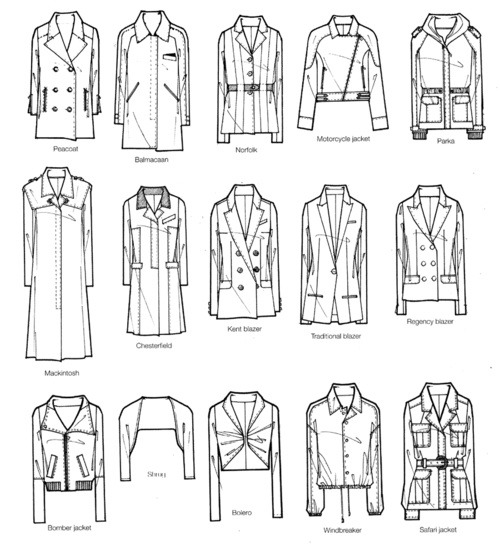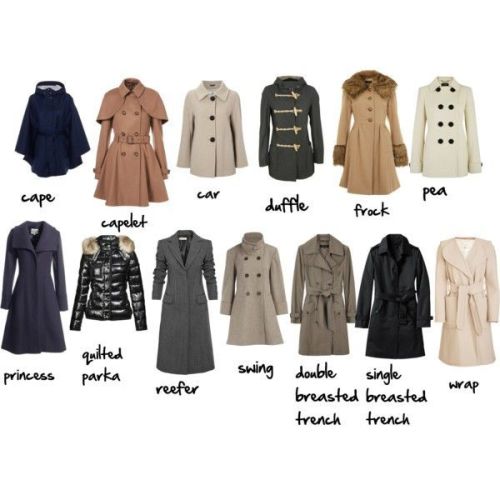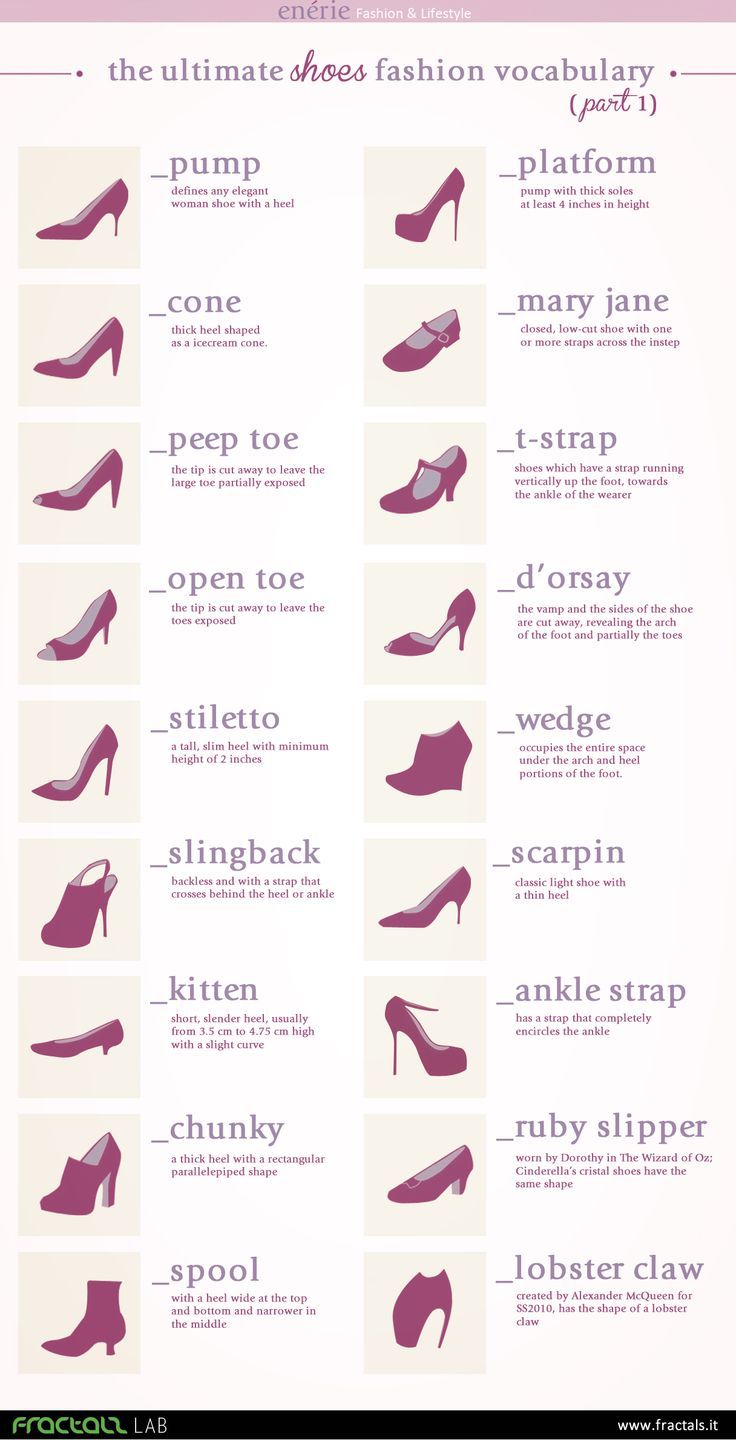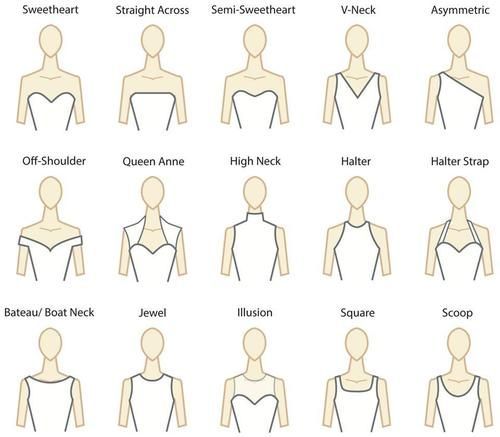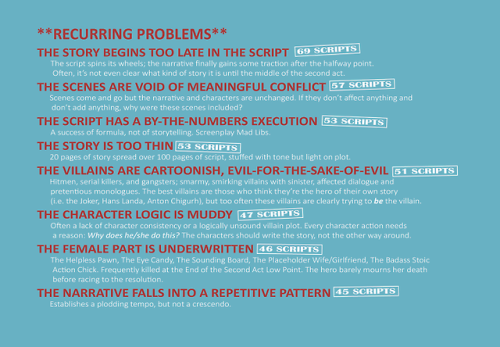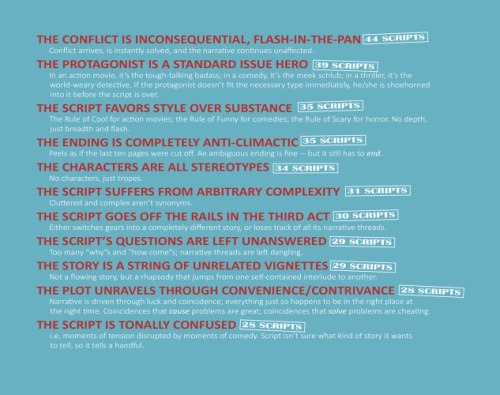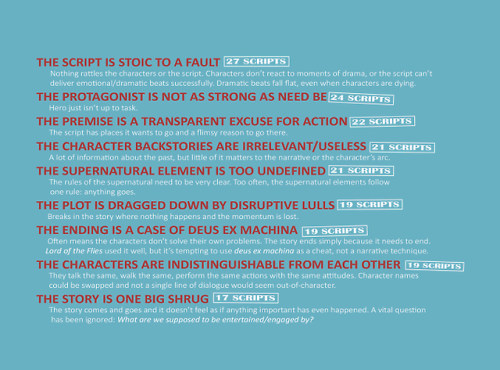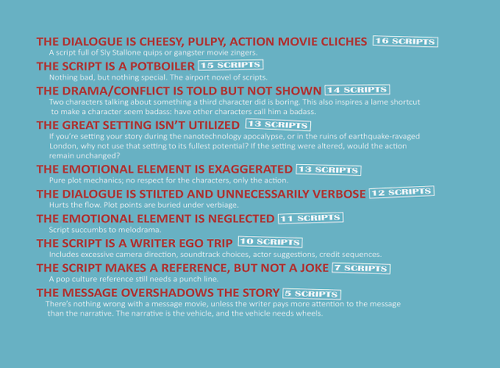Explore the world, one post at a time
Writing Ref - Blog Posts
Okay, this is in incredibly petty nitpick, but: if you’re writing a fantasy setting with same-sex marriage, a same-sex noble or royal couple typically would not have titles of the same rank - e.g., a prince and a prince, or two queens.
It depends on which system of ranking you use, of course (there are several), but in most systems there’s actually a rule covering this scenario: in the event that a consort’s courtesy title being of the same rank as their spouse’s would potentially create confusion over who holds the title by right and who by courtesy, the consort instead receives the next-highest title on the ladder.
So the husband of a prince would be a duke; the wife of a queen, a princess; and so forth.
(You actually see this rule in practice in the United Kingdom, albeit not in the context of a same-sex marriage; the Queen’s husband is styled a prince because if he were a king, folks might get confused about which of them was the reigning monarch.)
The only common situation where you’d expect to see, for example, two queens in the same marriage is if the reigning monarchs of two different realms married each other - and even then, you’d more likely end up with a complicated arrangement where each party is technically a princess of the other’s realm in addition to being queen of her own.
You’ve gotta keep it nice and unambiguous who’s actually in charge!
Actually
The question I get the most is how I write characters that feel like real people.
Generally when I’m designing a human being, I deconstruct them into 7 major categories:
1. Primary Drive 2. Fear: Major and Secondary 3. Physical Desires 4. Style of self expression 5. How they express affection 6. What controls them (what they are weak for) 7. What part of them will change.
1. Primary Drive: This is generally related to the plot. What are their plot related goals? How are they pulling the plot forward? how do they make decisions? What do they think they’re doing and how do they justify doing it. 2. Fear: First, what is their deep fear? Abandonment? being consumed by power? etc. Second: tiny fears. Spiders. someone licking their neck. Small things that bother them. At least 4. 3. Physical desires. How they feel about touch. What is their perceived sexual/romantic orientation. Do their physical desires match up with their psychological desires.
4. Style of self expression: How they talk. Are they shy? Do they like to joke around and if so, how? Are they anxious or confident internally and how do they express that externally. What do words mean to them? More or less than actions? Does their socioeconomic background affect the way they present themselves socially? 5. How they express affection: Do they express affection through actions or words. Is expressing affection easy for them or not. How quickly do they open up to someone they like. Does their affection match up with their physical desires. how does the way they show their friends that they love them differ from how they show a potential love interest that they love them. is affection something they struggle with?
6. What controls them (what they are weak for): what are they almost entirely helpless against. What is something that influences them regardless of their own moral code. What– if driven to the end of the wire— would they reject sacrificing. What/who would they cut off their own finger for. What would they kill for, if pushed. What makes them want to curl up and never go outside again from pain. What makes them sink to their knees from weakness or relief. What would make them weep tears of joy regardless where they were and who they were in front of.
7. WHAT PART OF THEM WILL CHANGE: people develop over time. At least two of the above six categories will be altered by the storyline–either to an extreme or whittled down to nothing. When a person experiences trauma, their primary fear may change, or how they express affection may change, etc. By the time your book is over, they should have developed. And its important to decide which parts of them will be the ones that slowly get altered so you can work on monitoring it as you write. making it congruent with the plot instead of just a reaction to the plot.
That’s it.
But most of all, you have to treat this like you’re developing a human being. Not a “character” a living breathing person. When you talk, you use their voice. If you want them to say something and it doesn’t seem like (based on the seven characteristics above) that they would say it, what would they say instead?
If they must do something that’s forced by the plot, that they wouldn’t do based on their seven options, they can still do the thing, but how would they feel internally about doing it?
How do their seven characteristics meet/ meld with someone else’s seven and how will they change each other?
Once you can come up with all the answers to all of these questions, you begin to know your character like you’d know one of your friends. When you can place them in any AU and know how they would react.
They start to breathe.
Writing References
I decided to make a reference post on most of the writing topics I’ve covered so far. If you’re looking for something specific, this might make it easier. Hope this helps!
General writing posts—
Ideas Worth Your Time
Antagonists
How to Keep a Deadline
How Anthropology Relates to Writing
Incorporating Flashbacks
When to Use Bad Language
How to Write What You Know
Is Your Novel Working
Introduction to Screenwriting
Writing with Others
Working on Multiple Projects Simultaneously
Picking Up an Old Story
Developing a Well Paced Novel
When to Include a Prologue
Dialogue Writing
Embarrassing Writing Habits
Developing Good Writing Habits
World Building 101
The Opening Hook
Developing Your Style
Types of Endings
Plotting Failures
Forging Friendships
Editing posts—
Easy to Miss Writing Mistakes
Staying Motivated During the Editing Process
Is Your Story Too Telly?
Editing: Who Should You Trust?
When to Begin Editing
On Editing
Easy Editing
Content Editing
Character posts—
My Character is Drunk
Writing the Significant Other
Writing the Best Friend
Writing the Best Antagonist
Introducing Your Characters
Character Trait Cheat Sheet
Characters You Need to Stop Writing (Or Reinvent)
Making Your Characters Likeable
Prewriting Characters
Writing a Young Character
The Importance of Characters
Is Your Character a Mary Sue?
Character Development Exercises
Strong Characters
Too Many Characters
Genre posts—
The Space Opera
Historical Fiction
What is High Fantasy?
Figuring Out Your Genre
The New Adult Genre
Different Types of Science Fiction
Writing Horror Novels
Teen Sick-Lit
Fantasy Clichés
Motivation—
Keep Being Weird
Important Writing Lessons
My Favorite Writing Quotes
You’re Not Perfect
Where to Write
Negative People to Avoid
Quick Motivation Tips
Using Rejection to Motivate
Finding the Courage to Share Your Writing
Staying Motivated
How to Stay Motivated Over the Weekend
Publishing—
Writing a Blurb
How to Make Sure Your Novel Won’t Get Published
Full Querying Guide
What is a Crossover Novel?
Body Language—
The Importance of Body Language
Further Understanding Body Language
Random posts—
Why Everyone Should Continue Writing Love Stories
Why Writer’s Are Insane
Don’t Preach to Your YA Readers
Overused Situations in Fiction Writing
Male Readers and Female Protagonists
The Power of Silence
Studying People
Trends I’m Sick of in YA Fiction
Virginity as an Identity
Sorry I couldn’t replace the link with the title of the post. CAN’T FIGURE OUT HOW TO DO THINGS ON TUMBLR NOW. Also, you can obviously follow my blog for more writing tips or suggest topics for me to cover. Thank you!
-Kris Noel
Herb Guide: Deaf Warriors and Hearing Disabilities
A reference for Warrior Cats fans creating characters with hearing loss, blending human advice with cat biology, written for an in-universe perspective on living with and managing such disabilities.
AKA Bonefall casts Spell of Stop Being Weird About Snowkit on all amoebas in 500 mile radius

[ID: A headshot of three cats, a brown tabby with a shredded ear (Strikestone), a solid white cat with blue eyes (Stonewing), and a gray cat with a mane (Dovewing).]
In the five Clans, hearing loss is both one of the most common sensory disabilities, and one of the most intense to adapt to. Through any mix of simple infections, birth abnormalities, or even just getting older, any given Clan can expect at least 1 in 4 of its cats to have some form of hearing loss.
Hearing loss is any impaired ability to hear, defined as not being able to hear noises under 20 decibels. Deafness is "profound" hearing loss, which means their hearing STARTS at a noise that is 81 decibels (ex: motorcycle, middle-distant clap of thunder) or louder. Most deaf people can still hear slightly, but sound is "muffled" and they can only hear VERY loud noises.
Hearing loss = Any impaired ability to hear. Normal hearing is 20 DB or lower.
Hard of Hearing (HOH) = Mild to severe hearing loss; starts between 21 DB and 95 DB.
Deaf = Profound hearing loss at 95 DB or higher; a clap of thunder is a quiet whisper.
MOST hearing loss will affect one ear more strongly than the other, and the cat will be HOH. The vast majority of cats with a hearing disability will still be able to understand their Clanmates, if they're just spoken to louder and more clearly. Cats who are born deaf (congenital deafness), however, tend to have profound hearing loss which affects their ability to understand speech.
Cats rely on their hearing and sense of smell much more strongly than they do on their eyesight. With hearing that's 4x more sensitive than a human's and can differentiate between 1/10th of a pitch, a Clan's healer would recognize hearing loss as a disability long before humans would even notice a problem.
Since hearing loss starts with the high-pitch noises that prey makes, like squeaks and chirps, hearing loss is a major reason for a senior warrior to begin to consider retirement. However, with proper support and accommodation, ANY warrior could adapt to this disability; Especially cats born deaf and younger HOH warriors with lots of time to re-learn.
This guide covers;
Common Causes
Traits and Challenges of Hearing Loss
Communication: Signs, lipreading, and more
Unique Challenges Clan-by-Clan
Sources are linked in a separate post, here, and linked again at the very bottom!
(note: this guide doesn't cover devices of any kind, but the reason why cochlear implants are sometimes controversial is because an implant will destroy that remaining hearing. They aren't hearing aids; hearing aids amplify sound. Aids and implants are two different things.)
Common Causes
There are DOZENS of ways to destroy the incredibly sensitive ears of a cat. ANY infection or injury can lead to permanent damage. That can include,
Injury gone sour, from battle, hunting, accidents, etc
Concussion, or a hard enough blow to the ear
Ear Mites, especially if the cat can't stop scratching it
Swimming in cold or dirty river water
Fungal or bacterial infections
Allergies, which can lead to sinus infections. Even an infection in the mouth or throat can spread to the ear!
There doesn't even need to be an infection. Around the ages of 7 - 11, a senior warrior may begin to gradually lose their hearing. Sometimes, through genetic factors or degenerative disease within the ear, an even younger warrior will lose it for "no reason."
It just happens, and it's incredibly common. They will usually begin to notice it when they stop being able to hear and hunt small rodents, because hearing loss will start with high-pitched noises.
Healers can do very little about this, besides attempting to clean any wax out of the ear canal with flax oil and a dab (such as moss, wool, or cloth). There are SO many ways for it to happen and so little in the way of treatments, that it's practically inevitable.
The majority of hearing loss is from infection or disease, but the most predictable way to see deafness in the Clans is in kits born white with blue eyes. In fact, ALL pure white cats are more prone to being born deaf!
Pure white without blue eyes: 17% to 22%
White with a single blue eye: 40% (and usually on the side of the blue eye)
White with two blue eyes: 65% to 85%
In an afflicted kit, the inner ear will rapidly degenerate. They typically lose most of their hearing by their 4th day, and will only be able to faintly hear extremely loud noises.
Of course, there's also various other birth defects that can result in deaf and HOH kits, even if they aren't white with blue eyes. The ear canal and hearing organs can just not form correctly! Any kit could be born with hearing loss, and they can have any type!
If the loss came from injury or severe infection, chronic pain in the inner ear is also common. Nothing can be done about this besides painkillers such as poppy seeds. This condition is rare in born-deaf cats.
Most cats with hearing loss will also permanently hear a repetitive, single-note sound. For most it's a faint, tinny "ring," but others can hear hissing, crackling, or humming in high or low pitch.
At first, this constant noise can be distracting or even debilitating, preventing them from focusing or sleeping, until... you just get used to it.
There is no way to turn the noise off. It can get worse or better, but it's forever. Sleeping and not being stressed out will help, but over time, they typically learn to tune it out. Being reminded of it is usually annoying, just like when someone reminds you about manual breathing.
(We call this condition tinnitus. It is up to you what you would like your cats to call it, the same way they refer to pneumonia as greencough. Tinnitus is a LOT broader than this little snippet, but this is not a guide about tinnitus, this is about hearing loss)
So to summarize that,
There's a billiondy-million ways to damage one's hearing.
Losing your hearing from age or disease usually results in being hard of hearing (HOH) as opposed to deaf, and is likely to affect one ear more than the other.
It starts with high-pitched noises like rodent squeaks.
Cats born white with blue eyes have a massive chance of being born deaf; their inner ear degenerates.
But, any kit could be born with any type of hearing loss, not just deafness.
Most cats with hearing loss will hear a distracting, repetitive noise. They just learn to tune it out.
Traits and Challenges of Hearing Loss
Hearing impaired cats are LOUD.
Even warriors who have mild hearing loss will often end up speaking much louder so they can hear themselves, or not notice the sounds they're making as they shift around in their nests, scuffle sand at the dirtplace, or trample through crunchy leaf litter.
If one of their ears is better than the other, they'll usually try to stand with their "good side" facing any speakers or other sources of noise. They might appear to be constantly standing at an angle, with their head turned towards the sound. It might be so second nature that they don't realize they're doing it.
Plus, a cat with hearing loss in only one ear will lose their hearing's "distance perception," the ability to pinpoint a sound's location. EXACTLY like how losing the sight in one eye causes the loss of "depth perception," they will have difficulty telling how far away a noise actually is.
Warriors who lose their hearing later in life typically have years of experience in knowing how prey behaves and what sorts of actions make noise; but cats born deaf have to be taught this.
Instead, born-deaf cats tend to associate "sound" with "vibration." Echoes, rumbles, and the sensation of their own humming or laughter can feel very pleasurable. Their whiskers are so sensitive that they can even feel drafts of air from someone speaking in front of them! Because of that, cats with impaired hearing do better with low, rumbling "sounds" rather than high-pitched ones; even when they can't hear either. They can feel lower pitched noises.
(NOTE: Decibels are the measurement of volume, and Hertz are the measurement of pitch. These are different things, NOT interchangeable. HIGH pitch and LOW volume are lost first.)
This is why hunting is so difficult when cats begin to lose their hearing. Their sense of smell and sight can be perfectly intact, but a lot of how a cat hunts is in listening for delicate little sounds and balancing them in both ears to figure out prey's exact location. So, when a cat is learning to hunt without their hearing, they have to rely on their other senses and keep their whiskers low, dusting the ground with their chops and front paws, in hopes of their quarry making a vibration they can feel.
IMPORTANT: Don't forget that cats have carpal whiskers! They are short whiskers on the front paws of a cat, used primarily for "grappling" with other cats and struggling prey. They are less sensitive than facial whiskers, but still very useful for a hearing impaired warrior.
"Dusting," keeping the face low, is still more effective than relying entirely on "Sweeping" movements with the paws.
The younger the cat is, the more time they will have to practice and master this. Cats born deaf, who have never relied on hearing before, are usually better hunters than older warriors learning completely new techniques.
But. Clan cats aren't the only danger in the forest.
A warrior who is deaf or hard-of-hearing will not hear danger approaching, and is easy to sneak up on. Even if they keep themselves completely quiet, an intelligent fox or an enemy warrior can launch an unexpected attack on their unsuspecting target. The wilderness is dangerous, and it's not feasible to keep one's whiskers pressed to the ground at all times, even if vibrations did carry far enough to detect such danger before it's too late.
So, it would be recommended for warriors with hearing loss to not wander too far without a hearing Clanmate capable of alerting them to sounds.
They also will have a VERY difficult time acting as part of a "battalion," in large-scale battles.
In fights with dozens of entangled warriors, while they're focused on fighting the cat in front of them, they will have a hard time hearing commands. Even if well-trained in visual cues like tail signs, deaf and HOH warriors might fail to respond to yowled orders like, "RETREAT" or "SECURE THE ENTRANCE."
Even if the warrior isn't fully deaf, battles are loud and chaotic! It's very likely that such orders would get lost in the clamor of hissing and screeching cats, if the cat has any difficulties with hearing at all.
In summary,
Cats with hearing disabilities are loud.
Hearing loss in one ear will cause the loss of distance perception, and they will often stand at an angle with their good ear facing the noise.
If they were born deaf, they have to learn what makes noise.
Highly tactile, they tend to rely on whisker-sense to "replace" their hearing.
Keeping their facial whiskers low to feel for vibration, "dusting," is a very useful technique.
"Sweeping" with the carpal whiskers is also useful, but less so than "dusting."
They are in increased danger from things sneaking up on them, and shouldn't go anywhere unsafe without a buddy.
Following battle commands in large-scale battles will be difficult or nearly impossible, making them bad "team players."
Communication: Signing, lipreading, and more
(psst! @twiigbranch has a free-to-use version of pawspeak if you credit them!)
Since the majority of these cats lost their ability to hear later in life, most warriors with hearing loss will speak "normally." By "normally," that means they will talk the same way they did their whole lives, just louder so they can hear themselves better.
Over many years, they may begin to stop enunciating their words, 'slurring' their sentences, and their pitch may be a little off. Even then, it's rare that a Clanmate would be able to "tell" they have hearing loss just from their cadence.
But, meanwhile, cats who are born deaf will have a very complicated journey with speech.
It's PIVOTAL for the kit's development that the family and the Clan takes an interest in trying to communicate with them. Deaf children often become isolated from communities that don't seem to care about them, the same way any other alienated child would. This can result in trauma, lack of self-confidence, and behavioral issues.
Even if your project doesn't have Pawspeak (or doesn't have it yet!), kittens WILL find ways to communicate with their family and Clan. Sign language can evolve organically from home signs, unique gestures that will rise for a deaf child to speak with their family. BUT, the sooner they're introduced to a true sign language, the better they will be able to communicate.
Sign languages can also die naturally, simply fading away if the next few generations don't keep them alive. It's possible for the Clans to have gone through a few, over the years!
(Note: Sign languages are full languages, not just "physical versions" of a spoken one. American Sign Language and British Sign Language are as different as English and Russian!)
It is also possible for cats born fully deaf, who have never heard words, to learn how to speak verbally... but, this takes a LOT more time and effort than using a sign language.
Teaching a deaf warrior how to say words is not quick or easy, and is a very physical process. It involves a lot of dedicated practice time back-and-forth, with the apprentice placing their paw on their mentor's throat to feel their voice, and being coached on how to mimic the exact inflections of every word. It can be very repetitive, and very boring.
Even with lots of training, speakers born deaf have a noticeable "accent." They pronounce consonants better than they do vowels (aeiou), and often lack tone and inflection. Each warrior is an individual, and using a speaking voice is a skill some will be better at using than others.
A deaf warrior could also learn how to read lips, in some situations. Like teaching a deaf cat verbal speech, it has its own challenges and isn't perfect.
These are REQUIRED for a proper lip reading;
Clear view of the face. If the speaker is too far away, moving around, or has their back turned, their lips can't be read.
Slow, clear speaking. If they're talking too quickly and slurring their words as if it's casual conversation, it will be extremely difficult to catch all of what they said. A better lip reader will be able to read faster.
Mental awareness. A cat who is tired to exhaustion, unable to focus, or not expecting to be spoken to will not be able to process what's being said. Lipreading is an action that takes brainpower.
MOST IMPORTANTLY: A single speaker, not overlapping with others. Lip reading is nearly useless during clanwide arguments. If there's tons of cats talking over each other, shouting out and interrupting, responding to unseen lips in the crowd, or even if an important speaker is just at a bad angle for the deaf warrior's line of sight to catch, they will not be able to catch everything.
Lipreading is also an action that takes focus. If the cat is tired to exhaustion, unable to concentrate because of being mentally unwell, or isn't expecting to have to read lips, they won't be able to process what words the mouth was forming.
(Look into a mirror. Quickly chant "Red right wrong" three times. Do you see how similar your lips look to form those words when you're not trying to clearly enunciate them? That's what lipreaders deal with.)
So, while there are other solutions, a sign language is absolutely the best choice if possible in your setting.
VERY IMPORTANT TIPS FOR WRITING A HEARING DISABILITY:
Please avoid them speaking with broken grammar, in third person, or with overly simplistic vocabulary, as if they are a toddler or a caveman. If a deaf cat is taught to speak, they will also learn grammar. BAD: "Examplefur go hunt. Me catch mouse good." OK: "I'm going hunting. I'm good at catching mice."
They will not suddenly "forget" how to speak if they lose their hearing, unless they have another condition such as brain injury.
Lip reading is inferior to signing.
They cannot perfectly catch every single word spoken in all conversations via lipreading, especially when the speaker isn't making an effort to include them, or it's during a disorganized group argument.
Teaching a deaf cat to speak verbally is a dedicated process, not something they easily "pick up."
Showing their hearing clanmates making an effort to include them, like doing translations or just making sure they understood everything, is massively appreciated.
A good culture around hearing loss is the best thing in the entire world for these cats. Support, respect, and acceptance are sincerely the most important factor in how well a hearing impaired warrior adapts with their disability.
So with that in mind, let's also explore the unique challenges in the terrains and culture of each Clan.
Unique Challenges Clan-by-Clan
Because of the nature of this disability, certain Clans are going to be more difficult for a hearing impaired warrior to function independently in, both in terms of environmental hazards and of culture.
Deaf and HOH warriors will not hear the sounds they're making if they step on noisy terrain or accidentally rustle nearby plants. Some enemies also rely more on stealth to attack their targets than others, and some territories will provide more places for prey and predators to hide. Water-related hazards will naturally cause there to be MORE disabled cats in some Clans more than others, which could mean that there will be less stigma and better community.
Environment means a lot to a cat with hearing loss!
RiverClan
Because this Clan is notorious for swimming in the river, they would have a massively higher rate of hearing loss (and scent loss) than other Clans; ESPECIALLY in late autumn and winter. This also means their healers would be MUCH more experienced with treating ear problems in general; but that's a subject for another guide!
(to answer a stray question before I eventually make that guide: RiverClan can make primitive earplugs out of beeswax to protect their hearing, but may need to trade with ThunderClan to acquire that.)
The important thing to note is that compared to other Clans, RiverClan has the highest rate of having HOH warriors. This means that there would be better support systems for hearing loss than in other Clans, and a cultural "bank" of techniques and knowledge to be shared.
They still have the same proportion of kittens born deaf compared to other Clans, but apprentices without hearing in RiverClan would have a bigger pool (heh!) of mentors who have experience with accommodating their disability.
Plus, you don't need to hear fish to catch them. While they'd still have issues hunting water voles and other wetland-loving rodents, fishers aren't at a significant disadvantage when it comes to providing food to the Clan.
Advantages--
High concentration of cats with similar disabilities provides community, and influences the broader culture to be more accommodating
Healers would have lots of experience with the injuries and illnesses that lead to hearing loss, leading to better treatment
Hearing is not necessary for catching fish, and thus has almost no bearing on how skilled a hunter would be.
Mentors would have better techniques for teaching deaf apprentices
Disadvantages--
Will not hear drowning cats. If you drop into that water you're on your own, bucko
Winter will be even harder than usual, when the river freezes over and fishing becomes more difficult.
Overall, RiverClan is THE best Clan for a deaf cat to be part of.
WindClan
With wide open spaces and lots of hills that offer a good vantage point, sight and vigilance is much more important for survival in a moorland than hearing. There's even an advantage to Pawspeak here; you can communicate from across the open moor without screaming out your location to all the prey!
On top of that, moorland has low-laying vegetation. It isn't a grassland, or filled with splashing water, or covered in crunchy leaf litter. There's not a lot of things TO accidentally make noise on, unless the warrior is trying to hide in a gorse or common heather bush, and WindClan is notorious for relying on speed over stealth anyway.
The one drawback to being a deaf moor-runner is that they will not hear baying hounds. Dogs are extremely common in moorland, either as sheep herders or as companions to human hunters shooting grouses. That said, the fact that hounds are the ONLY big predator they'll need to worry about immediately makes WindClan's moor safer than any woodland territory.
Badgers, boars, and foxes hate open spaces like moorland. It's just dogs that are a big concern, and hawks for smaller cats. There are very few "sneaky" predators in this area; most rely on speed.
So being a moor-runner is one of the best jobs that a warrior with hearing loss could have in the Clans... but the minute that they start to have problems listening to any orders, a tunneler should stop working underground immediately.
Deaf apprentices should be excused from their mandatory tunnel training, except to learn how to do evacuation drills.
There is no light underground. Even if they're capable of creating rushlights or are willing to sacrifice glowworms, that light will be dim at best, and could snuff out at any moment. Communication will become impossible with a deaf cat, and even moderate hearing loss will endanger any warrior who gets separated from their team.
If something as drastic as a cave-in or a flooding happens, they will be in extreme danger. They can't be properly warned unless they're pushed by a fellow digger, and they will not be able to notice anything that isn't rumbling. If they DO end up getting trapped under rubble, they will not hear a rescue party calling their name.
It's not just themselves they have to worry about, either. Not being able to warn or coordinate with their excavation team will put ALL of them in danger.
Advantages--
Moorland requires sharper eyes than ears to begin with.
Lack of ambush predators makes this territory particularly safe without hearing.
Quiet terrain makes sneaking less neccesary in the first place
Pawspeak is especially useful across wide distances
Disadvantages--
Hounds are still a massive danger; they could get very close before they're noticed, if they're upwind.
Will not receive a warning cry in case of any hawks or approaching predators.
Tunneling would be profoundly dangerous with a hearing disability; should be heavily discouraged.
Overall rating is that this is the second best Clan for a cat with hearing loss. RiverClan's sense of community still gives them the top seat imo, but if the attitudes of their Clanmates are good, WindClan's moor is an easy territory to adapt to.
ShadowClan
This one is going to depend on what version of ShadowClan the Erins feel like writing that day, or which one you've chosen for your own project. Do they live in a dry pine forest? Or a wetland?
If you're using the idea that ShadowClan lives in a dry pine forest, especially if your project exists in Britain where spruces, firs, and larches are non-native and thus the territory is a timber plantation, refer to the new growth section in ThunderClan below.
I do not abide by that idea, because Aengus the Prize Winning Hog did not emerge from a cranberry bog for me to disrespect him in this way <3 love ur local wetland <3
(quick note: a swamp is a wooded wetland, a marsh is an open wetland, a bog is acidic, and a fen is neutral/alkaline. Wetland is the general term here.)
Wetlands are rich with soggy ground, muck, and microbe-ridden stillwater. Though ShadowClan cats don't swim for fun, they would end up with more ear infections than most Clans through accidentally falling into the swamp. It's likely that they have the second-highest rate of hearing loss in the 5 Clans, but still significantly below RiverClan.
The lush, thick ferns and reeds provide lots of cover to the notoriously stealthy Clan, but to a warrior who can't hear, this terrain is loud and frustrating. The squish of mud under your paws and the rustle of undergrowth is very hard to adapt to if you can't hear it. ShadowClan's prey of birds, frogs, and water-rodents will respond to any accidental noises by fleeing, quickly, making hunting difficult.
Plus, ShadowClan doesn't rely on one, large, deep, stony body of water like RiverClan does, which seems to be sedimentary rock and open marsh all around. Predators are lurking everywhere in wooded swamps, and could sneak up on a warrior who can't hear them. Foxes, badgers, and boars are a danger in this territory.
All that said; ShadowClan still doesn't seem to rely on just rodents. They eat a lot of amphibians and reptiles, which are not hunted by sound. Most of the techniques they use to catch them can just be taught verbatim to a deaf apprentice, or continue to be used the same way by a warrior who has lost their hearing.
Advantages--
Concentration of warriors with hearing loss from falling into dirty water may provide community and support.
Has a good selection of prey that doesn't rely on listening to be hunted effectively.
Disadvantages--
Swamps, wooded wetlands, are dangerous and attract predators.
Lush foliage and soupy ground make moving quietly difficult for a deaf warrior; but not as difficult as leaf litter.
So, this Clan would be firmly middle-of-the-line in terms of its accessibility to a cat with hearing loss. It would depend a lot on how you plan to approach ShadowClan in your own project; such as if you plan to build out more campbound activities, see them as being social or antisocial with their Clanmates, and what kind of territory you choose for them to have.
SkyClan
As of the time of writing this guide in 2023, when the only decent description of SkyClan's new territory is from a single chapter of Squirrelflight's Hope, it's very difficult to figure out what sorts of terrain challenges a warrior with hearing loss would face at the lake.
Hopefully I can come back and update this later!
But it's most likely is that they have a diverse, varied territory, involving the climbing of steep hills and gorges. Even at the "gorge" territory, a lot of hunting would need to take place outside of the rocky parts of the ravine, in the sparse woodlands and countrysides nearby.
For hunting on sparse woodland, see the advice for ThunderClan. Most hunting in British countrysides is going to look very similar to WindClan's open fields, so refer up there for that.
Because of how close they are to humans, both in the Gorge and at the Lake, it's HIGHLY recommended that warriors with hearing loss avoid twolegplaces. ESPECIALLY towns. Between cars, crowds, and grabbing hands, these places are already dangerous (and sensory hell) for warriors with great hearing, but outright lethal for a hearing impaired cat who won't hear these things coming.
So while the majority of the Clan is jack-of-all-trades and regularly mixes up the particular terrain they hunt in, this is going to be harder for hearing impaired warriors. They have to invent brand new, unique techniques for ALL of these different environments, some of them more difficult than others. Because of that, it will naturally be easiest for a deaf warrior to "specialize" in a particular type of terrain.
This could result in some pretty intense feelings of alienation, as their hearing Clanmates regularly mix what sorts of places they tackle. Without even intending to, they could end up making the warrior feel very left out!
In terms of the culture though, SkyClan seems notoriously accommodating. Between the part-time-kittypet daylight warriors and the way they invented an entirely new mediator role for a cat who didn't enjoy hunting and fighting, it would likely be one of the BEST Clans in terms of supporting a hearing impaired warrior, even in spite of having a "standard" rate of hearing loss since their territory is not particularly wet.
So, it's very likely that they would WANT to fix the fact they've accidentally made their Clanmate excluded, and seek solutions that work for everyone. If any Clan besides RiverClan had a Pawspeak interpreter translating Leafstar's words, it would probably be these guys lmao
Advantages--
Varied terrain means there will be at least a few places that aren't too hard for them to adapt to
Sparse woods, open fields, and even gorges, the three most common terrain types, are at worst decent for a deaf cat to hunt in.
VERY accommodating culture, the absolute best outside of the Clans with a high hearing loss percentage.
Disadvantages--
Generalist training, where every warrior handles vastly different terrain types, will exponentially increase how much training a hearing-impaired warrior must learn.
Being unable to join with their Clanmates in hunting across the entire territory could feel isolating
Rating: Close to top tier, but variable. It's going to depend somewhat on the personality of the warrior. While SkyClan will likely make a big effort to include them, the reality of needing to learn several sets of parallel skills and the way they might feel like an "outsider" for specializing could cause extra distress. Especially for a warrior losing their hearing later in life.
ThunderClan
Because of their collaborative culture and hunting style, described as snobbish and bossy by other Clans, it's very likely that ThunderClan would struggle the most with a specific type of ableism. Since they value group cohesion, it follows they may force Assimilation onto a disabled warrior rather than Accommodation.
As mentioned earlier, Pawspeak is the best thing for the comfort of a deaf warrior... but it might not occur to this Clan to encourage the majority of the Clan to adapt to a minority of warriors.
But it gets worse. Forests are AWFUL terrain to hunt in if you can't hear. Imagine walking in a field with a bunch of invisible landmines, and if you step on one, it broadcasts your EXACT location.
It's difficult to tell if your mouse is running away because you crunched a leaf and made a sound... or because a bird in a tree SAW you and is now raising up an alarm cry. If you can't actually hear what the noise was that scared your lunch away, you might blame yourself for being clumsy as a fox barrels towards you!
When it comes to forests, there are significant differences between an old growth forest and a new growth forest. BOTH of them are going to be extremely difficult for a disabled warrior to adapt to, but old growth is harder.
OLD GROWTH
In both, ground litter is a challenge, but especially so in an old growth British forest. Natural forests there are primarily mixed oak, which drop twigs, leaves, and acorns all over the ground.
These areas are bountiful, productive, and brimming with life. Both in terms of prey and predators. The varied canopy of natural, mixed-age trees allows sunlight to filter through and create an "understorey," providing lots of food and cover to lots of different animals. Unfortunately, foliage is not a deaf warrior's friend.
As previously mentioned, a mix of areas for animals to hide in and a surrounding of rattling plant life is the worst possible combination for a cat who can't hear. Worse, hunting rodents depends massively on hearing them through the leaf litter, thanks to those high-pitched chirps and squeaks which are the first thing to vanish when a cat loses their hearing.
This would be so bad that it's likely ThunderClan "works" its youngest members much harder than its seniors, assigning apprentices and young warriors to significantly more hunting patrols. Since hearing loss is so common that it's practically inevitable, and the security of a Clan allows these wild cats to live to such old ages, it would be "common sense" to ThunderClan to structure things this way.
Old growth patches are practically food pantries for Clan cats, but hearing impaired warriors will have a HELLISH time trying to hunt in them.
NEW GROWTH
When a forest is new and all of the trees in a stand are about the same age, they create a uniform canopy. Like a continuous tent. This means they're so effective at blocking out sunlight that there's virtually no understorey.
No understorey means no food. Or very little food. But it also means no cover. And, usually, significantly less leaf litter. This is because in Britain, most of these types of forests are non-native conifers. Sitka spruce and douglas fir are the two biggest offenders-- and that's significant because nothing here has evolved to EAT the products of those trees.
In ThunderClan, Tallpines is an example of this, but this type of terrain could pop up anywhere that's seen massive destruction.
No understorey to feed prey, no products of the trees which native animals can eat, a silent floor covered in pine needles which offer no hiding places, almost chilling uniformity of the strange trees in evenly-spaced rows...
All of this to say that there's an irony here, that the hearing impaired warrior will be best at hunting in the most barren parts of the forest.
There's much less things to trip up on, or rustle. Prey can be plainly seen out in the open. Gray squirrels are the most significant prey that can utilize these areas, and they DO make a hearty meal for a Clan cat. Additionally, these areas are particularly silent because they're so barren, which might make them seem "creepy" to hearing warriors, but that wouldn't bother a deaf warrior one bit!
Advantages--
Cultural sentiment of "all for one; one for all" may lead to more dedication from the Clan as a whole in connecting to the hearing impaired cat
Which could be a blessing or a curse, depending on the individual warrior's feelings.
Ability to work efficiently in the most barren parts of the forest
Disadvantages--
Cultural emphasis on collaboration in group hunting likely leads to deaf cats being encouraged to adapt to the patrol rather than their own strengths.
May result in more emphasis on teaching lip reading and 'speech therapy,' rather than the adoption or implementation of Pawspeak.
Very difficult to stay quiet in a forest if you can't hear the crunch of leaf litter and twigs.
Lots of cover means random bullshit can spring out from any corner; abundance of ambush predators.
Cover also means there's a lot of places for prey to hide, and hearing can't be used to pinpoint the location.
Lots of rodent prey, which relies on hearing high-pitched noise to catch.
Rating: F MINUS, SEE ME AFTER CLASS. By FAR the worst Clan for a warrior with hearing loss to be part of, for both practical reasons, AND cultural reasons. Awful awful awful, absolutely abysmal, failing grade. Dark Souls for deaf cats
Though remember! This part of the guide is a suggestion. You do not need to include ableism in your own projects if you do not want to, and I hope with the information that you now have, you know how to better avoid it!
"Sources?"
Right this way~
All I'm saying is, if a fic refers to characters by their physical attributes instead of their names or pronouns ("he smiled at the older" "the blonde laughed") when we know who the character is, and ESPECIALLY if the descriptions include "ravenette" or "cyanette" or other ridiculous words--
I'm clicking out of that fic so fast my AO3 history won't even register I've been there.
some fucking resources for all ur writing fuckin needs
* body language masterlist
* a translator that doesn’t eat ass like google translate does
* a reverse dictionary for when ur brain freezes
* 550 words to say instead of fuckin said
* 638 character traits for when ur brain freezes again
* some more body language help
(hope this helps some ppl)


Show, don't tell : Part 1
Directory Writing Masterlist Blog Etiquette Buy me a Ko-Fi?

[ Angry + Frustrated ]
Red face
Tensing up jaw/body
Clenching fists
Gritting teeth
Stomped feet
Rolling eyes
Crossing arms
Kick/Hit something
Eyebrows furl
Face crunches up
Tight lips
Narrow eyes

[ Happy + Excited ]
Laugh/Giggle
Smile from ear to ear
High tone in voice
Smiling/Grinning while talking
Heart Pounding
Clapping
Breathing deeply
Squeal/Scream
Talking fast
Contentedly Sigh
Tilted head
Hand clasped over mouth

[Bored + Tired ]
Pace back and forth
Sigh loudly
Blank face
Play with fingers
Staring off into space
Yawning
Fidgeting around
Leaning head on hands
Rubbing eyes
Droopy eyes
Dark circles under eyes
Complaining

[Sad + Scared]
Trembling lips/body
Tears in eyes
Bite Nails
Curl up/tuck knees to chest
Bite nails
Eyes burn/turn red
Stop breathing OR breathe fast
Lose appetite
Frowning
Darting eyes
Blinking quick or not at all
Pounding heart

© ModifiedUchiha 2023 ★ Feel free to use them for inspiration , but give credit if adding to a list ★
How to show emotions
Part IV
How to show bitterness
tightness around their eyes
pinched mouth
sour expression on their face
crossed arms
snorting angrily
turning their eyes upward
shaking their head
How to show hysteria
fast breathing
chest heaving
trembling of their hands
weak knees, giving in
tears flowing down their face uncontrollably
laughing while crying
not being able to stand still
How to show awe
tension leaving their body
shoulders dropping
standing still
opening mouth
slack jaw
not being able to speak correctly
slowed down breathing
wide eyes open
softening their gaze
staring unabashingly
How to show shame
vacant stare
looking down
turning their head away
cannot look at another person
putting their head into their hands
shaking their head
How to show being flustered
blushing
looking down
nervous smile
sharp intake of breath
quickening of breath
blinking rapidly
breaking eye contact
trying to busy their hands
playing with their hair
fidgeting with their fingers
opening mouth without speaking
Part I + Part II + Part III + Part V
If you like my blog and want to support me, you can buy me a coffee or become a member! And check out my Instagram! 🥰
helpful sites for writers
i have a little collection of websites i tend to use for coming up with ideas, naming people or places, keeping clear visuals or logistics, writing basics about places i've never been to, and so on. i tend to do a lot of research, but sometimes you just need quick references, right? so i thought i'd share some of them!
Behind the Name; good for name meanings but also just random name ideas, regardless of meanings.
Fantasy Name Generator; this link goes to the town name generator, which i use most, but there are lots of silly/fun/good inspo generators on there!
Age Calculator; for remembering how old characters are in Y month in Z year. i use this constantly.
Height Comparison; i love this for the height visuals; does character A come up to character B's shoulder? are they a head taller? what does that look like, height-wise? the chart feature is great!
Child Development Guide; what can a (neurotypical, average) 5-year-old do at that age? this is a super handy quickguide for that, with the obviously huge caveat that children develop at different paces and this is not comprehensive or accurate for every child ever. i like it as a starting point, though!
Weather Spark; good for average temperatures and weather checking!
Green's Dictionary of Slang; good for looking up "would x say this?" or "what does this phrase mean in this context?" i love the timeline because it shows when the phrase was historically in use. this is english only, though; i dig a little harder for resources like this in other languages.
WHY YOU SHOULD WRITE HORRIBLY:
1. You’ll never write anything if you don’t
Repeat after me:
The first draft just needs to exist
The second draft needs to be functional
The third draft needs to be effective
The first draft just needs to exist
The second draft needs to be functional
The third draft needs to be effective
The first draft just needs to exist
The second draft needs to be functional
The third draft needs to be effective
Remember, the second and third can't happen if you don't have something to work with. Your first draft will always be shit compared to your third, but at least it exists. The worst first draft is an unfinished one. The best first draft is a just completed one.
You read books/stories not in their first draft form-- only in their finished form (third, fourth, sometimes fifteenth draft). So stop comparing your first draft with a final one.
So, just write--you can make it better later. Perfectionism is the greatest weight a creator can carry.
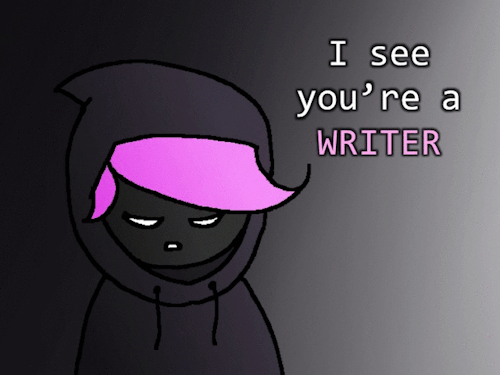

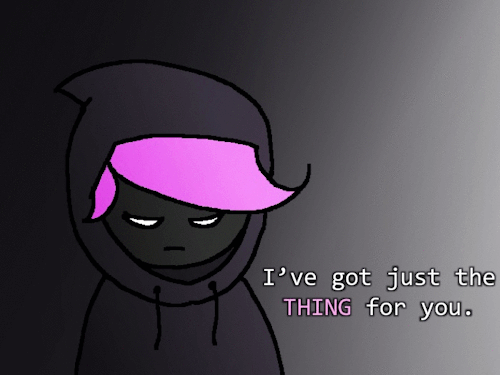
So, let me guess– you just started a new book, right? And you’re stumped. You have no idea how much an AK47 goes for nowadays. I get ya, cousin. Tough world we live in. A writer’s gotta know, but them NSA hounds are after ya 24/7. I know, cousin, I know. If there was only a way to find out all of this rather edgy information without getting yourself in trouble…
You’re in luck, cousin. I have just the thing for ya.
It’s called Havocscope. It’s got information and prices for all sorts of edgy information. Ever wondered how much cocaine costs by the gram, or how much a kidney sells for, or (worst of all) how much it costs to hire an assassin?
I got your back, cousin. Just head over to Havocscope.
((PS: In case you’re wondering, Havocscope is a database full of information regarding the criminal underworld. The information you will find there has been taken from newspapers and police reports. It’s perfectly legal, no need to worry about the NSA hounds, cousin ;p))
Want more writerly content? Follow maxkirin.tumblr.com!





I made these as a way to compile all the geographical vocabulary that I thought was useful and interesting for writers. Some descriptors share categories, and some are simplified, but for the most part everything is in its proper place. Not all the words are as useable as others, and some might take tricky wording to pull off, but I hope these prove useful to all you writers out there!
(save the images to zoom in on the pics)
How to avoid White Room Syndrome
by Writerthreads on Instagram
A common problem writers face is "white room syndrome"—when scenes feel like they’re happening in an empty white room. To avoid this, it's important to describe settings in a way that makes them feel real and alive, without overloading readers with too much detail. Here are a few tips below to help!
Focus on a few key details
You don’t need to describe everything in the scene—just pick a couple of specific, memorable details to bring the setting to life. Maybe it’s the creaky floorboards in an old house, the musty smell of a forgotten attic, or the soft hum of a refrigerator in a small kitchen. These little details help anchor the scene and give readers something to picture, without dragging the action with heaps of descriptions.
Engage the senses
Instead of just focusing on what characters can see, try to incorporate all five senses—what do they hear, smell, feel, or even taste? Describe the smell of fresh bread from a nearby bakery, or the damp chill of a foggy morning. This adds a lot of depth and make the location feel more real and imaginable.
Mix descriptions with actions
Have characters interact with the environment. How do your characters move through the space? Are they brushing their hands over a dusty bookshelf, shuffling through fallen leaves, or squeezing through a crowded subway car? Instead of dumping a paragraph of description, mix it in with the action or dialogue.
Use the setting to reflect a mood or theme
Sometimes, the setting can do more than just provide a backdrop—it can reinforce the mood of a scene or even reflect a theme in the story. A stormy night might enhance tension, while a warm, sunny day might highlight a moment of peace. The environment can add an extra layer to what’s happening symbolically.
Here's an example of writing a description that hopefully feels alive and realistic, without dragging the action:
The bookstore was tucked between two brick buildings, its faded sign creaking with every gust of wind. Inside, the air was thick with the scent of worn paper and dust, mingling with the faint aroma of freshly brewed coffee from a corner café down the street. The wooden floorboards groaned as Ella wandered between the shelves, her fingertips brushing the spines of forgotten novels. Somewhere in the back, the soft sound of jazz crackled from an ancient radio.
Hope these tips help in your writing!
Other Words for "Look" + With meanings | List for writers
Many people create lists of synonyms for the word 'said,' but what about the word 'look'? Here are some synonyms that I enjoy using in my writing, along with their meanings for your reference. While all these words relate to 'look,' they each carry distinct meanings and nuances, so I thought it would be helpful to provide meanings for each one.
Gaze - To look steadily and intently, especially in admiration or thought.
Glance - A brief or hurried look.
Peek - A quick and typically secretive look.
Peer - To look with difficulty or concentration.
Scan - To look over quickly but thoroughly.
Observe - To watch carefully and attentively.
Inspect - To look at closely in order to assess condition or quality.
Stare - To look fixedly or vacantly at someone or something.
Glimpse - To see or perceive briefly or partially.
Eye - To look or stare at intently.
Peruse - To read or examine something with great care.
Scrutinize - To examine or inspect closely and thoroughly.
Behold - To see or observe a thing or person, especially a remarkable one.
Witness - To see something happen, typically a significant event.
Spot - To see, notice, or recognize someone or something.
Contemplate - To look thoughtfully for a long time at.
Sight - To suddenly or unexpectedly see something or someone.
Ogle - To stare at in a lecherous manner.
Leer - To look or gaze in an unpleasant, malicious way.
Gawk - To stare openly and stupidly.
Gape - To stare with one's mouth open wide, in amazement.
Squint - To look with eyes partially closed.
Regard - To consider or think of in a specified way.
Admire - To regard with pleasure, wonder, and approval.
Skim - To look through quickly to gain superficial knowledge.
Reconnoiter - To make a military observation of a region.
Flick - To look or move the eyes quickly.
Rake - To look through something rapidly and unsystematically.
Glare - To look angrily or fiercely.
Peep - To look quickly and secretly through an opening.
Focus - To concentrate one's visual effort on.
Discover - To find or realize something not clear before.
Spot-check - To examine something briefly or at random.
Devour - To look over with eager enthusiasm.
Examine - To inspect in detail to determine condition.
Feast one's eyes - To look at something with great enjoyment.
Catch sight of - To suddenly or unexpectedly see.
Clap eyes on - To suddenly see someone or something.
Set eyes on - To look at, especially for the first time.
Take a dekko - Colloquial for taking a look.
Leer at - To look or gaze in a suggestive manner.
Rubberneck - To stare at something in a foolish way.
Make out - To manage to see or read with difficulty.
Lay eyes on - To see or look at.
Pore over - To look at or read something intently.
Ogle at - To look at in a lecherous or predatory way.
Pry - To look or inquire into something in a determined manner.
Dart - To look quickly or furtively.
Drink in - To look at with great enjoyment or fascination.
Bask in - To look at or enjoy something for a period of time.


🌸Describing Scents For Writers 🌸| List of Scents
Describing aromas can add a whole new layer to your storytelling, immersing your readers in the atmosphere of your scenes. Here's a categorized list of different words to help you describe scents in your writing.
🌿 Fresh & Clean Scents
Crisp
Clean
Pure
Refreshing
Invigorating
Bright
Zesty
Airy
Dewy
Herbal
Minty
Oceanic
Morning breeze
Green grass
Rain-kissed
🌼 Floral Scents
Fragrant
Sweet
Floral
Delicate
Perfumed
Lush
Blooming
Petaled
Jasmine
Rose-scented
Lavender
Hibiscus
Gardenia
Lilac
Wildflower
🍏 Fruity Scents
Juicy
Tangy
Sweet
Citrusy
Tropical
Ripe
Pungent
Tart
Berry-like
Melon-scented
Apple-blossom
Peachy
Grape-like
Banana-esque
Citrus burst
🍂 Earthy & Woody Scents
Musky
Earthy
Woody
Grounded
Rich
Smoky
Resinous
Pine-scented
Oak-like
Cedarwood
Amber
Mossy
Soil-rich
Sandalwood
Forest floor
☕ Spicy & Warm Scents
Spiced
Warm
Cozy
Inviting
Cinnamon-like
Clove-scented
Nutmeg
Ginger
Cardamom
Coffee-infused
Chocolatey
Vanilla-sweet
Toasted
Roasted
Hearth-like
🏭 Industrial & Chemical Scents
Metallic
Oily
Chemical
Synthetic
Acrid
Pungent
Foul
Musty
Smoky
Rubber-like
Diesel-scented
Gasoline
Paint-thinner
Industrial
Sharp
🍃 Natural & Herbal Scents
Herbal
Aromatic
Earthy
Leafy
Grass-like
Sage-scented
Basil-like
Thyme-infused
Rosemary
Chamomile
Green tea
Wild mint
Eucalyptus
Cinnamon-bark
Clary sage
🎉 Unique & Uncommon Scents
Antique
Nostalgic
Ethereal
Enigmatic
Exotic
Haunted
Mysterious
Eerie
Poignant
Dreamlike
Surreal
Enveloping
Mesmerizing
Captivating
Transcendent
I hope this list can help you with your writing. 🌷✨
Feel free to share your favorite scent descriptions in the replies below! What scents do you love to incorporate into your stories?
Happy Writing! - Rin T.
12 Red Herrings to Keep Your Readers Distracted
I’ve seen mystery/thriller authors use the same handful of red herrings too many times to count. So here are some (hopefully not as common) red herrings for your writing.
1. The Unreliable Narrator's Bias
Your narrator can play favourites and scheme and twist the way your readers interpret the story. Use this to your advantage! A character portrayed as untrustworthy can really be someone innocent the narrator framed, vice versa.
2. The Loyal Traitor
A character with a history of betrayal or questionable loyalty is an obvious suspect. They did it once, they could do it again, right? Wrong! They’ve actually changed and the real traitor is someone you trusted.
3. The Conflicted Expert
An expert—like a detective, scientist, or historian—analyses a piece of evidence. They’re ultimately wrong, either due to bias, missing data, or pressure to provide quick answers.
4. The Overly Competent Ally
You know that one sidekick or ally who’s somehow always ahead of the curve? They’re just really knowledgeable, your characters know this, but it makes it hard to trust them. Perfection is suspicious! But in this case, they’re actually just perfect.
5. The Misleading Emotional Clue
Maybe one of your characters is seen crying, angry, or suspiciously happy after xyz event. Characters suspect them, but turns out they’re just having a personal issue. (People have lives outside of yours MC smh). Or it could be a cover-up.
6. A Misleading Alibi
At first this character’s alibi seems perfect but once the protag digs into it, it has a major hole/lie. Maybe they were in a different location or the person they claimed to be with was out of town.
7. The Odd Pattern
Have a seemingly significant pattern—symbols left at crime scenes, items stolen in a specific order, crimes on specific dates. Then make it deliberately planted to mislead.
8. The Misinterpreted Relationship
A character was secretly close to a victim/suspect, making them a suspect. Turns out they were hiding a completely unrelated secret; an affair, hidden family connection, etc.
9. A Forgotten Grudge
Create a grudge or past feud and use it to cast suspicion on an innocent character. Introducing an aspect of their past also helps flesh out their character and dynamics as a group + plant distrust.
10. The Faked Death
Luke Castellan, need I say more (I will)? A supposedly innocent character dies, but turns out they faked it and were never a victim in the first place. They just needed to be out of the picture.
11. The Mistaken Eavesdropper
A character overhears a threat, argument, etc. They suspect B based on this convo, but turns out they just came to a false conclusion. (Or did they?)
12. The Forgetful Alibi
Someone confesses to hearing/seeing a clue, but turns out they were mistaken. Maybe they thought they heard a certain ringtone, or saw xyz which C always wears, but their memory was faulty or influenced by stress.
Looking For More Writing Tips And Tricks?
Check out the rest of Quillology with Haya; a blog dedicated to writing and publishing tips for authors!
Instagram Tiktok
5 editor’s secrets to help you write like a pro
1. Sentences can only do one thing at a time.
Have you ever heard a four-year-old run out of breath before she can finish her thought? I edit a lot of sentences that work the same way. You need a noun, you need a verb, you might need an object. Give some serious thought to stopping right there.
Sentences are building blocks, not bungee cords; they’re not meant to be stretched to the limit. I’m not saying you necessarily want a Hemingway-esque series of clipped short sentences, but most writers benefit from dividing their longest sentences into shorter, more muscular ones.
2. Paragraphs can only do one thing at a time.
A paragraph supports a single idea. Construct complex arguments by combining simple ideas that follow logically. Every time you address a new idea, add a line break. Short paragraphs are the most readable; few should be more than three or four sentences long. This is more important if you’re writing for the Web.
3. Look closely at -ing
Nouns ending in -ing are fine. (Strong writing, IT consulting, great fishing.) But constructions like “I am running,” “a forum for building consensus,” or “The new team will be managing” are inherently weak. Rewrite them to “I run,” “a forum to build consensus,” and “the team will manage.” You’re on the right track when the rewrite has fewer words (see below).
(If for some insane reason you want to get all geeky about this, you can read the Wikipedia article on gerunds and present participles. But you don’t have to know the underlying grammatical rules to make this work. Rewrite -ing when you can, and your writing will grow muscles you didn’t know it had.)
4. Omit unnecessary words.
I know we all heard this in high school, but we weren’t listening. (Mostly because it’s hard.) It’s doubly hard when you’re editing your own writing—we put all that work into getting words onto the page, and by god we need a damned good reason to get rid of them.
Here’s your damned good reason: extra words drain life from your work. The fewer words used to express an idea, the more punch it has. Therefore:
Summer months Regional level The entire country On a daily basis (usually best rewritten to “every day”) She knew that it was good. Very (I just caught one above: four-year-old little girl)
You can nearly always improve sentences by rewriting them in fewer words.
5. Reframe 90% of the passive voice.
French speakers consider an elegantly managed passive voice to be the height of refinement. But here in the good old U.S. (or Australia, Great Britain, etc.), we value action. We do things is inherently more interesting than Things are done by us. Passive voicemuddies your writing; when the actor is hidden, the action makes less sense.
Bonus: Use spell-check
There’s no excuse for teh in anything more formal than a Twitter tweet.
Also, “a lot” and “all right” are always spelled as two words. You can trust me, I’m an editor.
Easy reading is damned hard writing. ~ Nathaniel Hawthorne




I've had this little idea in my head for a while now, so I decided to sit down and plot it out.
Disclaimer: This isn't meant to be some sort of One-Worksheet-Fits-All situation. This is meant to be a visual representation of some type of story planning you could be doing in order to develop a plot!
Lay down groundwork! (Backstory integral to the beginning of your story.) Build hinges. (Events that hinge on other events and fall down like dominoes) Suspend structures. (Withhold just enough information to make the reader curious, and keep them guessing.)
And hey, is this helps... maybe sit down and write a story! :)
Writing advice from my uni teachers:
If your dialog feels flat, rewrite the scene pretending the characters cannot at any cost say exactly what they mean. No one says “I’m mad” but they can say it in 100 other ways.
Wrote a chapter but you dislike it? Rewrite it again from memory. That way you’re only remembering the main parts and can fill in extra details. My teacher who was a playwright literally writes every single script twice because of this.
Don’t overuse metaphors, or they lose their potency. Limit yourself.
Before you write your novel, write a page of anything from your characters POV so you can get their voice right. Do this for every main character introduced.
What would your advice for just-starting-out young authors be?
I love new writers! I’ve never known a better way to escape my reality and live a thousand different lives.
I started writing when I was young, maybe 12 or 13 years old. I am now 25, and very much consider myself to be a child, but still, in my 10+ years of personal writing and classes, here are some of the best tips I can give anyone who is new to writing, regardless of age.
Read. Read. Read. Then read some more. The easiest and fastest way to learn how to write is by reading and studying how other people have written their stories. Study their balance of dialogue vs description vs action. Study the words they use and what they’re choosing to describe. Study the scenes that make you feel something, or pull you to the story even more, and dissect it until you understand how to do it.
Daydream. At night, in the morning, before and after school, during school, during work. When people are trying to talk to you, just daydream. Image worlds with populated moons. Imagine worlds with multiple human-like species all living in the same area. Image a boy who goes home and cries to his adoptive family parents, and girls who practices knife throwing every night to prepare for the apocalypse that no one sees coming. Dream of everything and anything because that’s how you keep and improve your creativity. Eventually you may even write something with it.
Write for yourself. Always start by writing what you enjoy, and love your characters and your stories. Everything about your first draft should be because you love the story, not what other people like. You will never please everyone, so start with yourself, and build a community with the ones who love your story as much as you do.
Do it on your own timeline. If you want to write a book in a month, edit the next and publish right after, do it. If you want to write the first five chapters of 8 books without finishing, do it. If, like me, you want to write your first novel at 18 years old, and 7 years later still not feel ready to publish, that’s ok! You are not falling behind anyone else, you are exactly where you should be on your own path.
Practice. Your writing will improve with practice, that’s how it works, it’s how it always works. No way to skip right to publishing a first draft and becoming famous for it. Practice and just keep writing, you will improve.
Challenge yourself. While you may love fantasy or romance, or maybe all your story ideas are too big for only one book and they all end up being series’, you need to try new things. Write a mystery short story. Write poetry on how you feel. Write one page on how you could survive a zombie apocalypse as long as you have your coffee in the morning, it doesn’t matter, just try new things. Trying new things is how I wrote this haiku: Take a deep inhale, Breathe fresh air into my lungs, I savorfreedom. Is it the greatest haiku ever? No, but it makes me happy, and reminds me that I can write, good or bad, and still be proud of myself.
Keep all your projects. Good or bad. Look back on them years later and think, yeah that was terrible, at least I’m better now. Or maybe think, this wasn’t as bad as I thought it was. It’s a progressive journey. You can take your time. DONT EVER SHAME YOUR YOUNGER SELF FOR THEIR WORK. THEY TRIED THEIR HARDEST AND WROTE AS BEST THEY COULD. WE ARE PROUD OF OURSELVES, NOT EMBARRASSED OR SHAMED. Whether the work is from years ago or days go. Be kind to yourself, no one else owes you that.
Compare. Compare to popular novels, compare to your friends stories or to people online. Compare and see if your character are developed enough, or if your story makes sense, or if it’s relatable. When comparing however, keep in mind that your written style will be different than all others writers. Your first novel will not be the same as an author’s 10th book that just went viral on TikTok. It takes practice and time. Compare for style, technique, structure and plot. Not for popularity, worth, importance, and don’t feel down thinking that someone writing at a higher grade level makes them better, it doesn’t.
Share your work. If you are embarrassed, use a pen name. That’s perfectly fine. Put your work out there and get feedback. Having one person saying your story is (negative criticism here) is going to happen, don’t freak out. It doesn’t mean your story is flawed and should be tossed. If most people are saying that, then maybe it’s time to revisit the story and plot. Getting feedback from people reading your story is important, you want to ask specific questions so you don’t get generic answers. Get real reviews from real people, the mean voice in your head doesn’t get a say.
Learn the difference between perfect and done. I know, I know. Perfectionists around the world just scoffed and thought ‘I would if I could’. Here’s the thing, it’ll never be perfect. A word won’t be right, you can’t find the right way to convey an emotion, your choice of vocabulary isn’t up to your standards, I get it. You want your work to be absolute perfection so that everyone loves it and no one can say a bad thing about it, but it doesn’t work that way. Instead make it to ‘complete’, then nitpick some details, then it’s done. Done is good, it’s where you want to be.
Self-publishing? Pay for a professional editor and a graphic designer. It makes a difference, I promise.
There’s lots of others, but I would say as a writer-starter-pack, these should get you started, then you will learn lessons all on your own, or find them as you’re writing later on. Truly, just have fun, and the rest will come with time.
Happy Writing!
Willow
Some of my writer’s block cures:
Handwrite. (If you already are, write in a different coloured pen.)
Write outside or at a different location.
Read.
Look up some writing prompts.
Take a break. Do something different. Comeback to it later.
Write something else. (A different WIP, a poem, a quick short story, etc.)
Find inspiring writing music playlists on YouTube. (Themed music, POV playlists, ambient music, etc.)
Do some character or story prompts/questions to get a better idea of who or what you’re writing.
Word sprints. Set a timer and write as much as you can. Not a lot of time to overthink things.
Set your own goals and deadlines.
Write another scene from your WIP. (You don’t have to write in order.) Write a scene you want to write, or the ending. (You can change it or scrap it if it doesn’t fit into your story later.)
Write a scene for your WIP that you will never post/add to your story. A prologue, a different P.O.V., how your characters would react in a situation that’s not in your story, a flashback, etc.
Write down a bunch of ideas. Things that could happen, thing that will never happen, good things, bad things.
Change the weather (in the story of course.)
Feel free to add your own.
I think the most heartbreaking thing is…writing does take practice. You’re probably not going to be at your best when you start out. The worst part about writing is that you’re going to be very shaky and probably pretty bad before you can get pretty good. Writing, like all forms of art, takes practice and discipline and willingness to try and keep going, no matter how difficult it may seem. And it can suck! We all know that! Creative ruts and writers block are tough but inevitable aspects of the process of writing. But just know that if you’re not satisfied with your work now, it only means that you’re going to be even better in the future. One day you’ll be able to look back at your work and go, “wow this kinda sucks, but that just means that I’ve gotten better now!” Writing takes time. You’re not gonna get good overnight. So keep going! Keep pushing! You only get better from here :)

